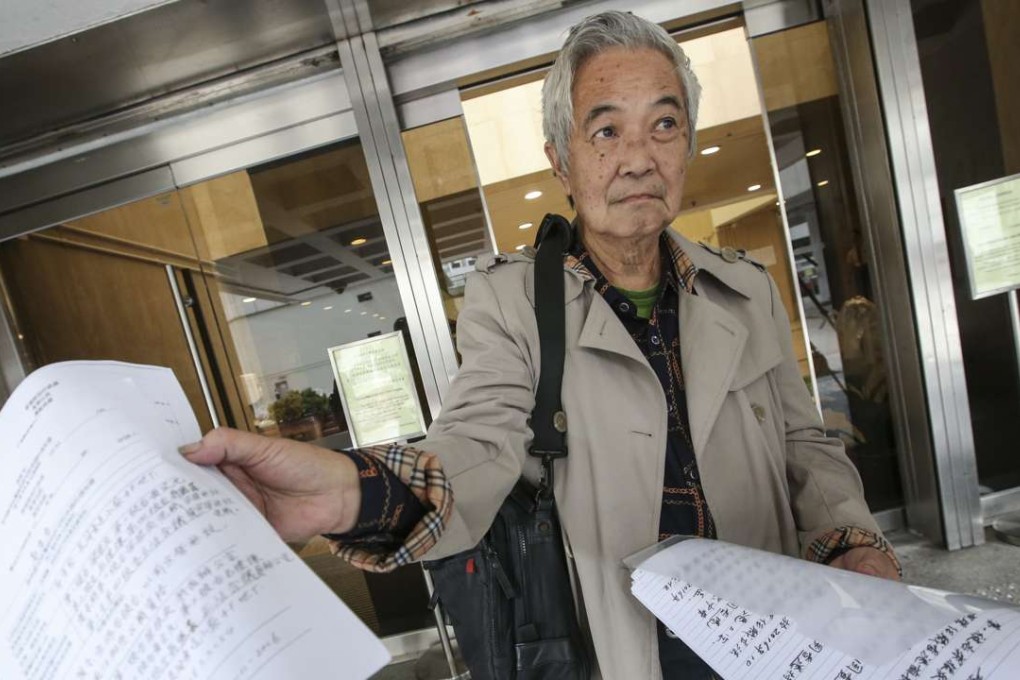Did CY Leung mess up his own oath? Legal challenge over Hong Kong leader’s 2012 swearing in
Writ claims he omitted ‘Hong Kong’ and that three pro-Bejing lawmakers last month botched theirs too, including one sounding like she said ‘sour oath’

A retired civil servant with a history of launching legal challenges against the local government is taking aim at Hong Kong’s leader and three pro-establishment lawmakers in the latest twist in an oath saga that prompted Beijing to interpret the city’s mini-constitution.
In a writ filed on Friday, Kwok Cheuk-kin asked the High Court to declare Chief Executive Leung Chun-ying’s 2012 oath invalid when he was sworn in as the city’s leader after securing 689 votes from a 1,200-strong election committee. Kwok cited media reports that Leung and three lawmakers who were sworn in last month had skipped and mispronounced words during their oaths.
Watch: Leung Chun-ying’s 2012 oath
He urged the court to declare the October 12 oaths of pro-establishment lawmakers Ann Chiang Lai-wan, Abraham Razack and Wong Ting-kwong invalid.